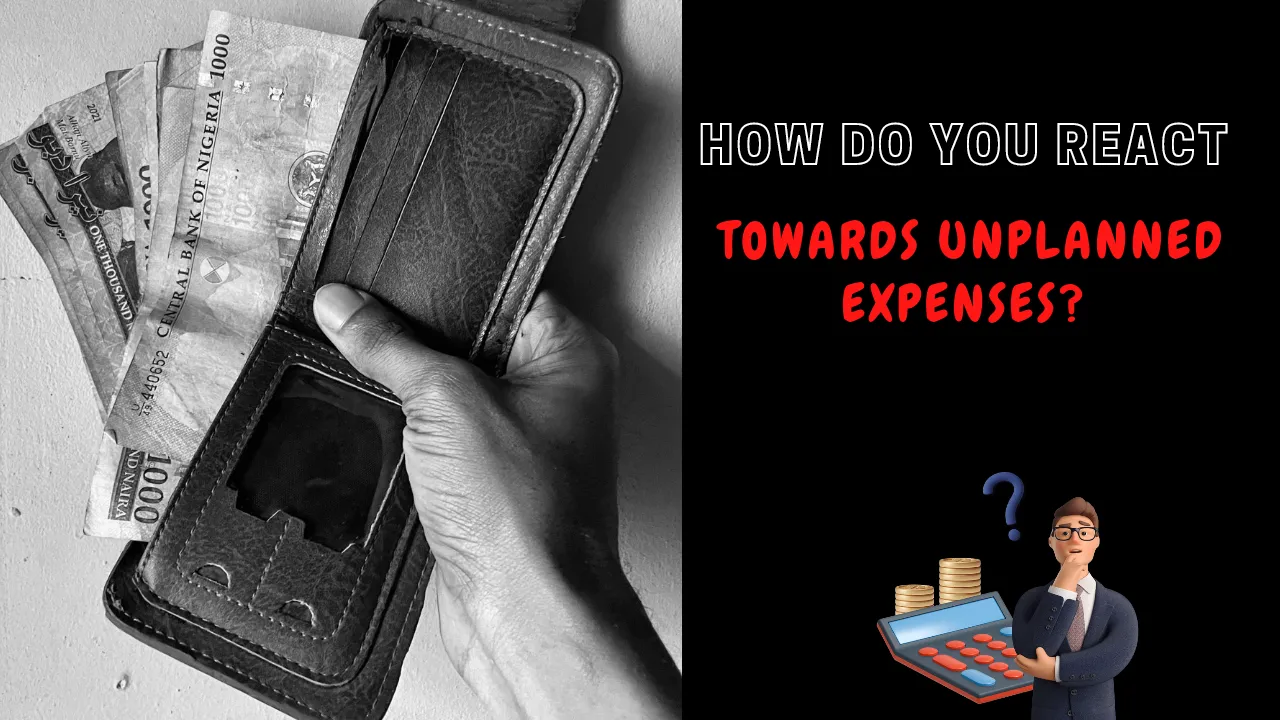
Most of the money we earn is spent on things we would never initially consider and this is because the plans we make without having the means are different from the plans we make when we actually have the means (money) to afford them.
The truth is that most of our plans are unrealistic without means, they're wild, imaginative, instinctive, and wishful. But with money, they're better tailored and realistic, not fun to envisage, and full of opportunity cost. Are we better decision-makers with or without money? I like to think that being a better decision-maker isn't by having the means.
People have different experiences with money on a daily, some people choose to build on these experiences and be better, others just ignore these experiences, not remembering that life can be repetitive and having a mental reserve helps one build on their experience to become better savers, money earners or even better planners.
The truth is, no one completely plans how to spend their money and still manages to accomplish that without making mistakes. This is because some of our spending choices are correctional. This means that if we spend amiss today, we would aim to spend rightly the next time so that we can correct the mistakes we've made in the past.
However, we can never stop making mistakes and using our hard-earned money to correct them, this is because we're humans and we can forgive ourselves because no one intentionally puts themselves in a difficult situation. If you're someone who financially carries the responsibilities of others, it'll be difficult to prune them from making mistakes.
For example, you might not have the power to stop your son or daughter from smashing your $500 television while you're away at work and this is because you're never fully present to monitor their excesses. While you understand that breaking a TV of $500 might create a dent in your expenditure for a specific period thereby creating a repercussion.
It's difficult to explain this to a 5-year-old and this is because they're not equipped with the right experience to understand the financial consequences of making an unavoidable mistake. One of the reasons why we try to make the right decision is because we want to avoid financial consequences as much as we can, but this would only reduce the probability rather than completely take them away.
Life is a probability game and we're fighting every day to reduce the probability of failure while increasing the likelihood of success in our life this is why it's very difficult to completely fine-tune our money to the original plans we have for it.
Being responsible is a phase in life that no one gains mastery of and this is because there's no manual to becoming rich or poor in life. The scariest aspect of life is the aspect of people failing where others are succeeding or failing where others are succeeding.
We cannot bank our abilities alone to get this done in life and when we're not solely responsible for things like finance it'll be difficult to get others to do things the way we'd want them to. So how do you react to unplanned expenditures? Oopppss that came out more rhetorical than expected, the truth is, no one completely plans for this and not even with their emergency funds per se.
Sometimes we wish to never have any emergency even if we're already prepared for it, this is one of the reasons why we hope for the best but expects the worst. In the game, of finance, we're all speculators, having few facts and opinions to predict an unknown outcome, if not, everyone would have become a guru and made the best decisions in life.
The reality is, uncertainty is one of man's biggest blessings and curses and this is why we can only plan and speculate, although we have people who do not play by the rules, you need to have a lot of resources to even permutate rightly. Some days ago, I dropped my phone charger on the ground and it stopped working completely, after spending $15 to buy it and only using it for four months.
Now, the previous charger got burnt by a high electricity voltage and that one was even close to $30, now, on the surface, it felt like I had been careless, but I really wasn't, sometimes our life, money, savings or plans goes haywire because we cannot map out our lives in the hope that it would completely error free and this is why we often have intentional reasons for making money but spends a huge chunk of this income to correct unintentional errors.
This is why things that aren't initially in plans become priorities because they're inevitable and we cannot blame ourselves for it. Sometimes, we have a series of good luck and sometimes bad as well.
When we go through the former, we do not question why, but we often question the latter, forgetting that sometimes good and bad things happen and we're deserved neither. At the end of the day, we will keep spending money for correctional purposes and the likelihood will continue especially if there are people who we're responsible for.
Interested in some more of my works?
The Intrinsic Propensity To Spend Money
Poverty: The Unwillingness To Spend?
A Scenic Bathroom Photoshoot
The Importance Of Having A Contingency Money Plan
Translational Value; What Is Your Worth?
Using Crypto As A Means Of Transferring Will
